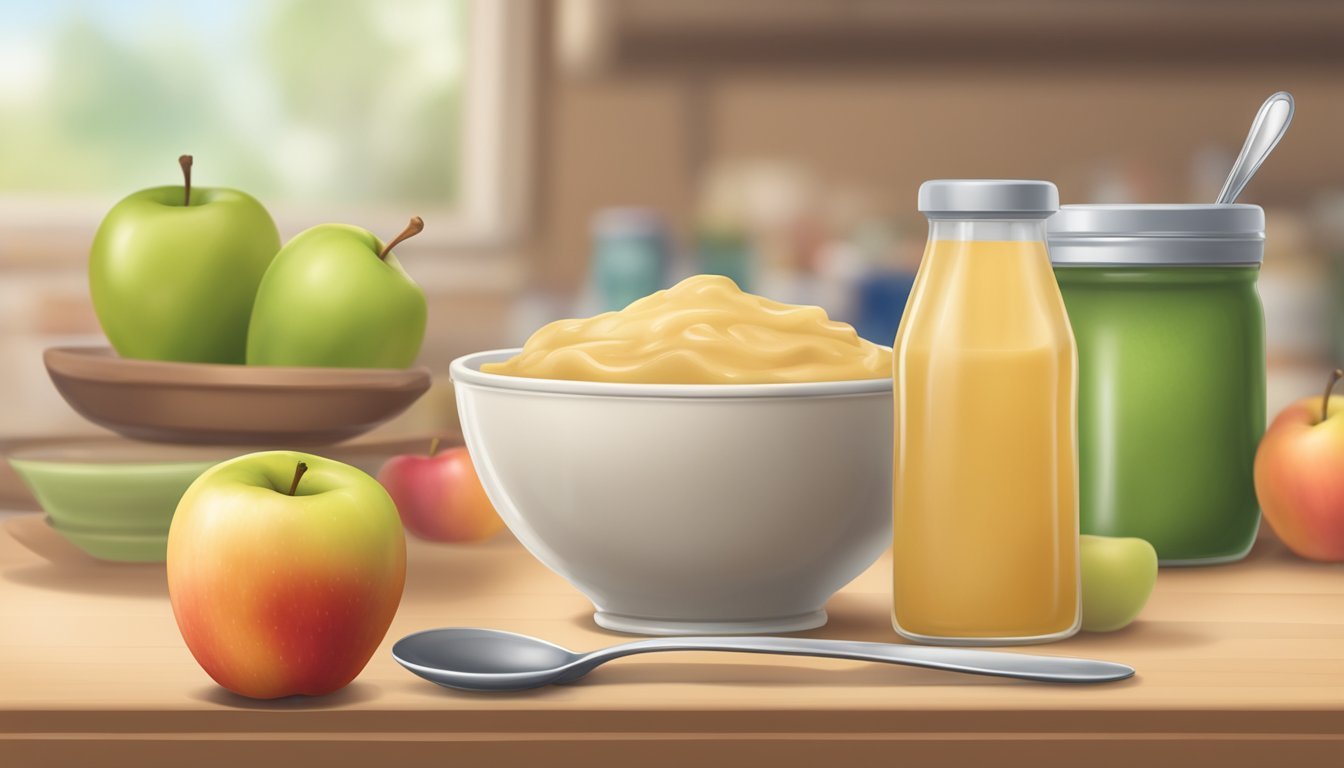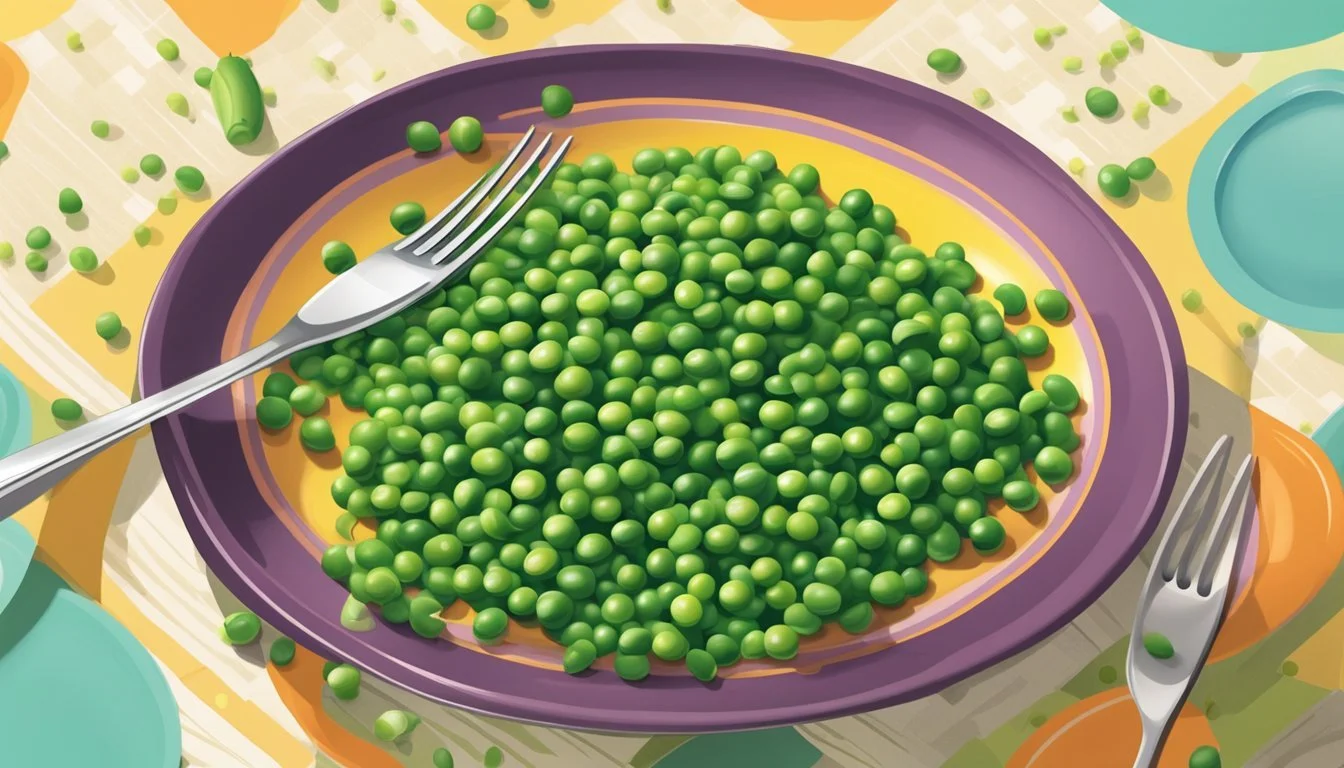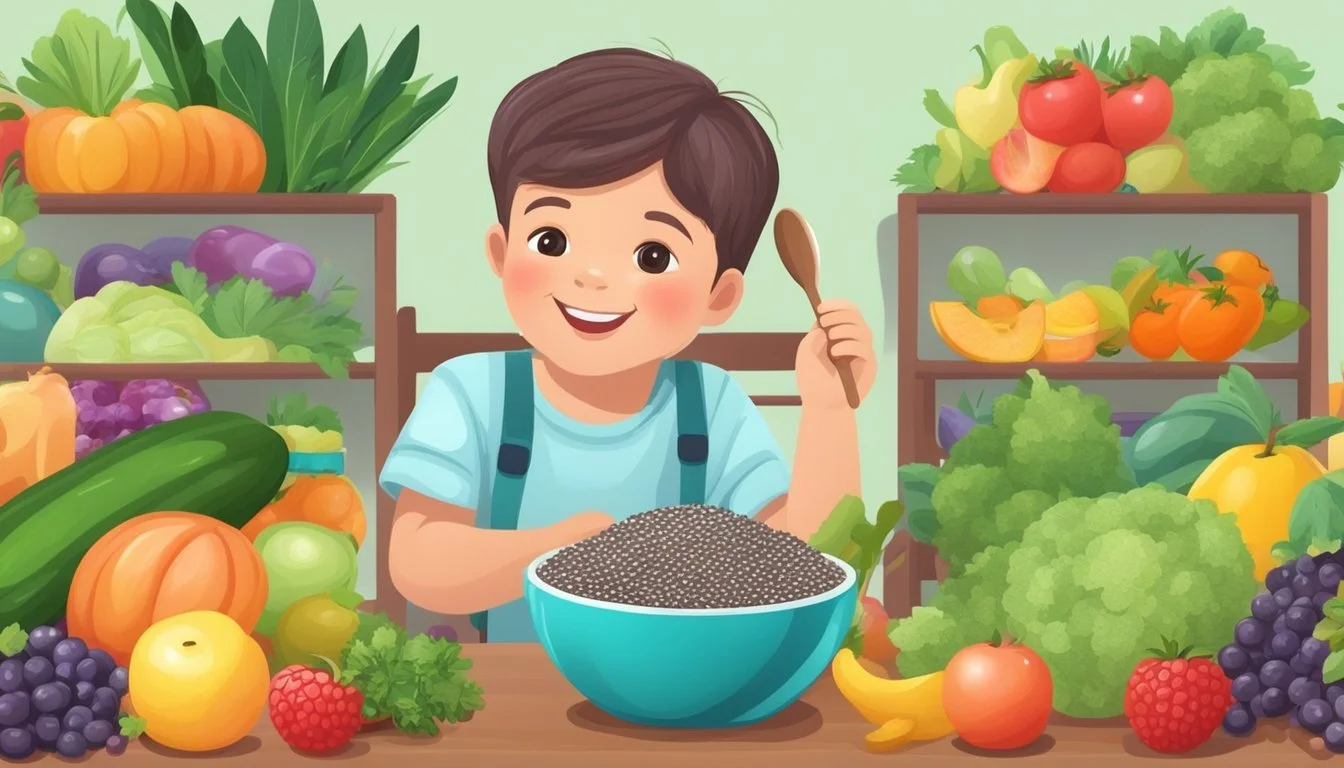Kid-Friendly Foods to Promote Healthy Digestion and Regular Bowel Movements
Constipation in children is a common concern for many parents, often leading to discomfort and frustration for both the child and the caregiver. Dietary adjustments play a crucial role in preventing and alleviating constipation, making it essential to understand which foods can help maintain a smooth digestive process.
Incorporating the right foods into a child's diet can significantly improve their bowel movements and overall digestive health. While various natural remedies exist, knowing specific foods that can ease constipation can make meal planning both effective and straightforward.
1) Prunes
Prunes are well-known for their natural laxative properties, making them a popular choice for easing constipation in children.
These dried plums contain high levels of dietary fiber, aiding in smoother digestion. The soluble fiber in prunes absorbs water, forming a gel that softens the stool.
Additionally, prunes have sorbitol, a natural sugar alcohol that promotes bowel movements by drawing water into the intestines.
For children who may resist eating whole prunes, prune juice serves as a practical alternative. Mixing a small amount of prune juice into their favorite drinks or smoothies can mask the taste while delivering the same benefits.
It's a convenient way to incorporate prunes into their diet regularly.
2) Applesauce
Applesauce can be an effective remedy for kids who are experiencing constipation. The pectin in applesauce acts as a natural laxative and helps regulate bowel movements. It's gentle on the stomach and easy for kids to digest.
When choosing applesauce, look for varieties with no added sugar. Natural, unsweetened applesauce is best to avoid extra calories and potential digestive disruptions.
Including applesauce in a child's diet can be simple. Serve it as a snack, mix it with yogurt, or add it to oatmeal. It's a versatile option that many kids enjoy, making it easier to incorporate into meals.
The fiber content in applesauce helps to bulk up stool and facilitate easier passage through the intestines. This can help keep the digestive system running smoothly.
Regular intake of applesauce, combined with other high-fiber foods and plenty of water, can be a practical approach to preventing and relieving constipation in children.
3) Pear juice
Pear juice is a helpful remedy for constipation in children. The natural sugars and fiber in pears work gently to aid digestion.
Rich in sorbitol, a natural laxative, pear juice helps soften stools and promote regular bowel movements. This makes it a practical option for kids who suffer from constipation.
Parents can serve pear juice alone or mix it with other juices for variety. It's a tasty, hydrating way to ease digestion without the need for harsh medications.
Pear juice also contains vitamins and minerals, offering additional nutritional benefits. Children usually find it palatable, making it an easy addition to their diet.
With a pleasant taste and gentle effectiveness, pear juice stands out as a simple, natural solution to help kids manage constipation.
4) Peas
Peas are an excellent choice for helping kids with constipation. These small, green vegetables are rich in dietary fiber, which aids in creating bulk in the stool, making it easier to pass.
Adding peas to a child’s diet can be simple and versatile. They can be included in soups, salads, or served as a side dish.
Beyond fiber, peas also offer essential vitamins and minerals. They contain vitamin A, vitamin C, and several B vitamins, contributing to overall digestive health.
Peas are relatively mild in taste, which makes them a kid-friendly option. They blend well into various dishes, ensuring kids receive adequate fiber without much fuss. For a picky eater, mashing peas with potatoes can be a more appealing way to include them in meals.
5) Broccoli
Broccoli is a powerhouse vegetable that can aid in relieving constipation in kids. Packed with dietary fiber, it helps to keep the bowel movements regular. Just one cup of cooked broccoli contains about 5 grams of fiber.
This vegetable also has a high water content, which helps soften the stool and promotes easier passage through the digestive tract. Kids often enjoy broccoli when it's steamed and seasoned lightly or even blended into soups and sauces.
Broccoli is versatile and can be incorporated into various meals. It can be added to pasta dishes, casseroles, and stir-fries. For a fun twist, try making broccoli tots or mixing it into mashed potatoes.
Introducing broccoli early into a child's diet can help them develop a taste for this nutritious vegetable. It's a simple yet effective way to support digestive health and keep constipation at bay.
6) Whole Grain Bread
Whole grain bread is an effective option to help kids relieve constipation. It contains both soluble and insoluble fiber, which aid in digestion and promote regular bowel movements. The fiber absorbs water, making stools softer and easier to pass.
Choosing bread that is 100% whole wheat ensures higher fiber content. Each slice typically contains 2 to 3 grams of fiber. This makes it a simple addition to meals, whether as toast or in sandwiches.
Incorporating whole grain bread into a child's diet can be easy and versatile. Parents can add fibrous toppings like avocado, peanut butter, or vegetable slices to boost fiber intake further. Whole grain bread is also suitable for school lunches and snacks, fitting into various meal plans seamlessly.
7) Oatmeal
Oatmeal is a beneficial food for children dealing with constipation. A single packet of plain, instant oatmeal contains approximately 4 grams of fiber. Adding sliced fruit can further increase the fiber content, making it an even more effective remedy.
Fiber is essential for promoting healthy bowel movements. It adds bulk to the stool and makes it easier to pass. Oatmeal, being a whole grain, is an excellent source of soluble fiber, which absorbs water and forms a gel-like substance in the gut.
Preparing oatmeal is straightforward, and its mild flavor appeals to many children. It can be customized with various toppings, such as berries, nuts, or a sprinkle of flaxseed meal, to make it both nutritious and enjoyable.
Including oatmeal in a child's breakfast routine can help establish regularity and reduce discomfort associated with constipation. Given its high fiber content and versatility, oatmeal is a practical choice for parents looking to support their child's digestive health.
A serving of oatmeal is a simple, reliable way to incorporate more fiber into a child's diet. Its ease of preparation and adaptability makes it a go-to option for constipation relief.
8) Yogurt
Yogurt can be a beneficial food for children experiencing constipation. It contains probiotics, which are live bacteria that help maintain a healthy balance of gut flora. These beneficial bacteria can support digestive health and improve stool consistency.
Including yogurt in a child’s diet may help regulate bowel movements. Opt for plain, unsweetened varieties to avoid added sugars, which can sometimes exacerbate digestive problems.
Yogurt can be served in various ways, making it a versatile option for kids. It can be mixed with fruits or used as a base for smoothies, adding both flavor and nutritional value.
When introducing yogurt, it's important to consider any potential lactose intolerance. Some children may have trouble digesting dairy products. In such cases, lactose-free or plant-based yogurts can be good alternatives.
Regular consumption of yogurt can contribute to an overall healthier digestive system. It’s an easy and effective way to help relieve constipation in children.
9) Chia Seeds
Chia seeds offer a significant amount of fiber in small servings, making them an efficient food to help kids maintain regular bowel movements. Two tablespoons of chia seeds provide 7 grams of fiber. This fiber content is largely soluble, aiding in the formation of a gel-like substance that helps stool move smoothly through the colon.
Their mild flavor and small size make chia seeds easy to incorporate into various foods. They can be mixed into smoothies, yogurt, or even baked goods without altering the taste significantly. Adding them to a child's diet can be done seamlessly without much resistance.
Chia seeds not only provide fiber but also come packed with healthy fats, particularly omega-3 fatty acids. These fats contribute to overall digestive health. Because their texture changes when mixed with liquid, chia seeds can be turned into puddings or added to drinks, making them a fun and healthy choice.
In addition to their functional benefits, chia seeds can help diversify a child's diet. Introducing them early can help establish healthy eating habits. With their high fiber content and ease of use, chia seeds can be a valuable part of a balanced diet for kids.
10) Sweet Potatoes
Sweet potatoes are a beneficial food for kids facing constipation.
Rich in dietary fiber, they can help regulate bowel movements. One medium sweet potato offers about 4 grams of fiber, contributing to a child's daily needs. This fiber helps soften the stool, making it easier to pass.
The skin of sweet potatoes contains much of this fiber. Preparing them with the skin on enhances their efficiency as a stool softener. Baking or boiling them are good methods that keep their nutritional value intact.
Sweet potatoes are also versatile. They can be mashed, roasted, or even made into fries. Adding spices and herbs can make them more appealing to children.
When introducing sweet potatoes, ensure they are cooked thoroughly to avoid any digestive discomfort. Always start with small portions and gradually increase based on the child's tolerance.
Regularly including sweet potatoes in a child's diet can be an effective way to promote healthy digestion and alleviate constipation.
Why Diet Matters for Children's Digestion
A balanced diet rich in fiber and adequate hydration plays a critical role in maintaining healthy digestion for children. These factors help ensure regular bowel movements and prevent constipation.
Role of Fiber
Fiber is essential for promoting healthy digestion in children. It adds bulk to the stool and helps it move smoothly through the digestive tract. There are two main types of fiber: soluble fiber and insoluble fiber.
Soluble fiber forms a gel-like substance in the digestive system, slowing digestion and making stool easier to pass. Foods rich in soluble fiber include oats, apples, and beans.
Insoluble fiber does not dissolve in water and adds bulk to the stool, helping it pass more quickly through the intestines. Sources include whole grains, nuts, and vegetables.
Including a variety of fiber-rich foods in a child’s diet helps ensure they get both types of fiber, supporting overall digestive health.
Importance of Hydration
Staying well-hydrated is crucial for a child’s digestive health. Adequate water intake helps soften the stool, making it easier to pass and preventing constipation. Hydration helps the fiber in their diet work more effectively.
In addition to plain water, other liquids like fruit juices, clear soups, and vegetable juices can also contribute to hydration. It is recommended that children drink primarily water and limit sugary beverages.
Encouraging children to drink water throughout the day can help maintain optimal digestion and keep them feeling comfortable and healthy.
Foods That Promote Healthy Bowel Movements
Helping kids maintain regular bowel movements can be achieved through dietary choices like fruits, vegetables, whole grains, and probiotic-rich foods. These foods offer essential nutrients and fiber, which aid digestive health.
Fruits and Vegetables
Fruits and vegetables are excellent sources of dietary fiber, which is crucial for promoting regular bowel movements. Fruits such as apples, pears, and berries contain both soluble and insoluble fibers. Soluble fiber absorbs water and forms a gel-like consistency, which softens the stool. Insoluble fiber, found in vegetables like carrots and broccoli, adds bulk to the stool, aiding its movement through the digestive tract.
Bananas and oranges also provide fiber and are easier for kids to eat. Including a mix of raw and cooked vegetables ensures a variety of nutrients and fibers. For example, a medium raw artichoke provides approximately 6.9 grams of fiber, which can contribute significantly to the daily fiber intake of children.
Whole Grains
Whole grains are another key component of a diet that supports healthy bowel function. Foods such as whole wheat pasta, brown rice, and oatmeal are rich in dietary fiber, particularly soluble fiber. This type of fiber helps to hold water in the stool, making it softer and easier to pass.
An easy way to integrate whole grains into a child’s diet is by mixing whole wheat pasta with regular pasta. This gradual approach avoids overwhelming the child with new tastes and textures. Additionally, incorporating whole grain bread and cereals into meals adds fiber without much effort.
Probiotic-Rich Foods
Probiotics, the beneficial bacteria found in certain foods, play a significant role in maintaining gut health. Yogurt, kefir, and fermented foods like sauerkraut and kimchi contain live cultures that promote a healthy balance of gut flora. This balance is essential for digestion and can help prevent constipation.
Introducing probiotics into a child's diet can be simple with flavored yogurts specifically designed for children, or probiotic drinks like kefir. These not only aid digestion but can be an enjoyable addition to their meals or snacks. For children reluctant to try new foods, starting with small servings and gradually increasing the amount can make the transition smoother.
Additional Tips for Supporting Digestive Health
Supporting your child's digestive health involves both dietary and lifestyle changes. Encouraging physical activity and establishing regular meal times are key strategies to help maintain regular bowel movements.
Encouraging Physical Activity
Physical activity plays a significant role in maintaining healthy digestion. When children move, their muscles, including the ones in their intestines, contract more efficiently. This helps food and waste move through the digestive system.
Simple activities like playing tag, riding a bike, or even a family walk after dinner can make a difference. Sports and structured activities such as swimming or soccer are also beneficial. Encouraging at least 30 minutes of moderate exercise daily can positively impact bowel regularity.
Establishing Regular Meal Times
Regular meal times can help stabilize digestive rhythms. Eating at consistent times each day encourages the digestive system to function more smoothly. This routine can enhance the body's gastrocolic reflex, which naturally occurs after eating and stimulates bowel movement.
Serving three balanced meals along with one or two healthy snacks can help regulate bowel activity. Avoiding large gaps between meals reduces the likelihood of constipation. Combining meal times with fiber-rich foods, like fruits and whole grains, can offer additional digestive support.







